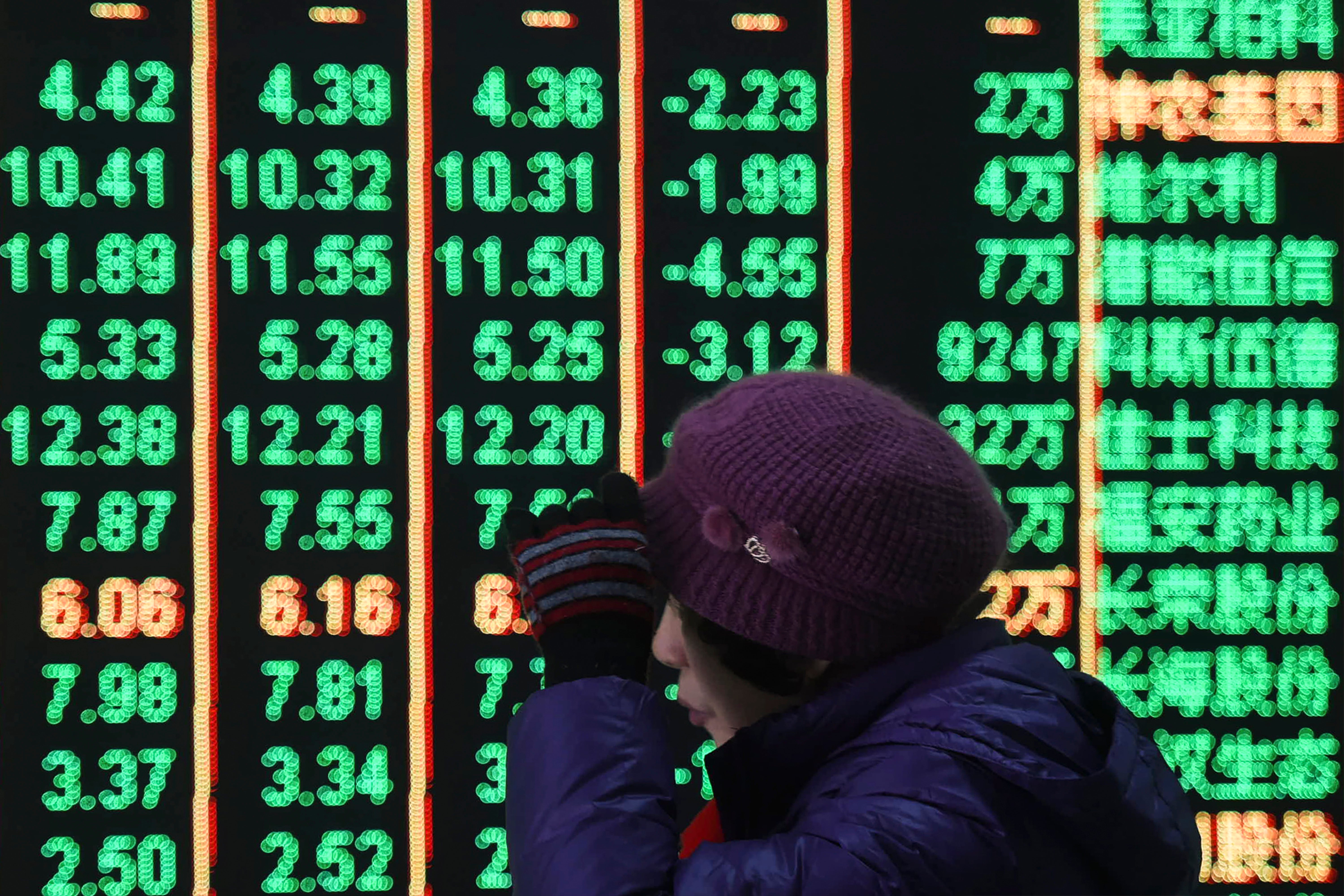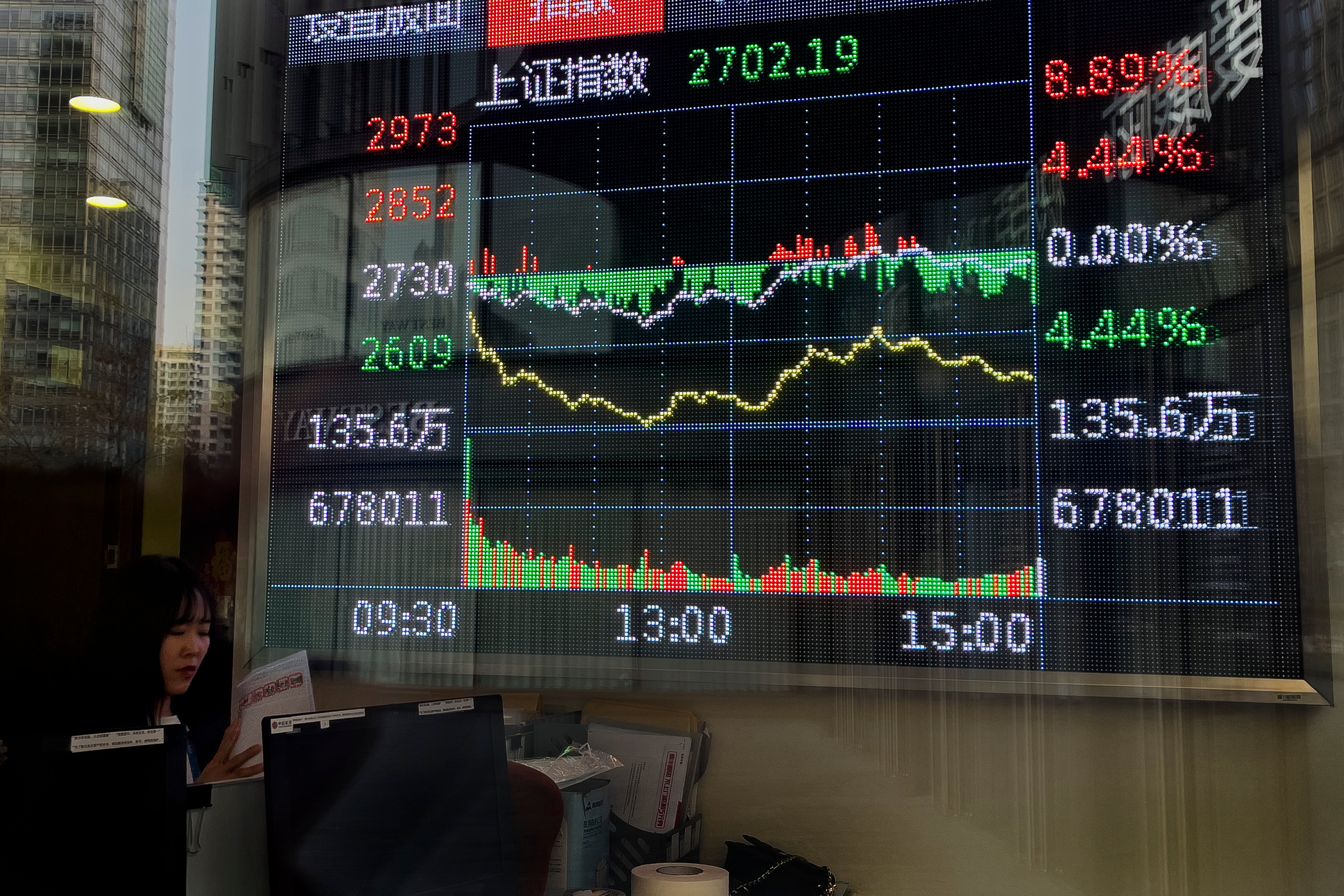China markets slump to five-year lows
Former President Donald Trump has threatened to impose 60% tariffs on imports of Chinese products

Chineseshares gyrated on Monday, sinking to 5-year lows after market regulators sought to reassure jittery investors with a promise to crack down on stock price manipulation and “malicious short selling.”
Shares in Shanghai and the smaller market in Shenzhen, near Hong Kong, swung between big losses and small gains throughout the day. The markets have languished on heavy selling of property shares, which are enduring a slump in the real estate market.
The China Securities Regulatory Commission held a meeting Sunday focused on stabilizing the markets, state-run Chinese media reported. A notice on its website appeared designed to reassure individual investors who account for more than half of trading volume.
It vowed to crack down with harsh punishment for insider trading and other violations.
“We must sincerely listen to the voices of the broad numbers of investors, respond to their concerns and protect their rights as investors,” the CSRC said in a notice.
Those promises followed comments by various top officials on the need to restore market stability.
The head of the economic crimes unit of the Supreme People's Procuratorate, the country's top public prosecutor's office, said in an interview in the Securities Times, a publication of the ruling Communist Party's People's daily.
“Protecting the rights of investors is the top priority,” said Zhang Xiaojin. “We will continue to increase the intensity of punishing financial crimes in key areas, and severely crack down on crimes that seriously disrupt the order of the capital market in accordance with the law.”

Market observers said there were signs Monday that the authorities had, as is often the case, ordered big institutional investors to step up buying of state-owned banks and other heavyweights. Many of those shares saw strong gains.
The Industrial & Commercial Bank of China gained 2.3%, Bank of China rose 2.8% and the Agricultural Bank of China rose 2%. But overall, shares still mostly lost ground, and technology stocks were among the biggest decliners.
The Shenzhen Component index lost 1.1% after dipping as much as 4.4%. The Shanghai Composite index shed 1% to 2,702.19, having lost 3.5% earlier.
“The situation in the Chinese equity market appears tumultuous, reflecting broader concerns about regulatory uncertainty and government intervention," Stephen Innes of SPI Asset Management said in a report.
“Despite attempts by state authorities to stabilize the market, investor sentiment remains fragile, reflecting deep-seated concerns about the reliability of government policies and the regulatory framework,” Innes said.
Wilder swings were seen in the CSI 1000 index, an exchange-traded fund that fell as much as 8.7% on Monday before regaining some of the losses to close down 6.2%. The CSI 1000 often is used to track so-called “snowball derivatives,” investment products that can pay big gains but also can result in exaggerated losses.
Markets were calmer in Hong Kong. The benchmark Hang Seng index, which has also recently seen significant losses, edged 0.2% lower, to 15,510.01.
Chinese companies have lost billions of dollars worth of market value as investors shifted away from the markets in Hong Kong and the mainland in search of better returns. Tokyo's benchmark, the Nikkei 225 index, is trading at near 35-year highs, though that is partly due to changes in investment rules that are drawing money into the market.
Apart from the troubles in China's property market, where developers are struggling to repair their balance sheets after the government cracked down on excessive borrowing several years ago, a slowing of China's economy, the world's second largest, has also taken a toll.
Uncertainty over tensions with Washington isn’t helping. Former President Donald Trump has threatened to impose 60% tariffs on imports of Chinese products at a time when the U.S. already is curbing Beijing‘s access to advanced computer chips and other strategically sensitive technologies.
In 2018, Trump started a trade war by vastly raising tariffs on Chinese imports. China retaliated with tariffs on U.S. goods, and the tariffs on both sides remain to this day.
Bookmark popover
Removed from bookmarks